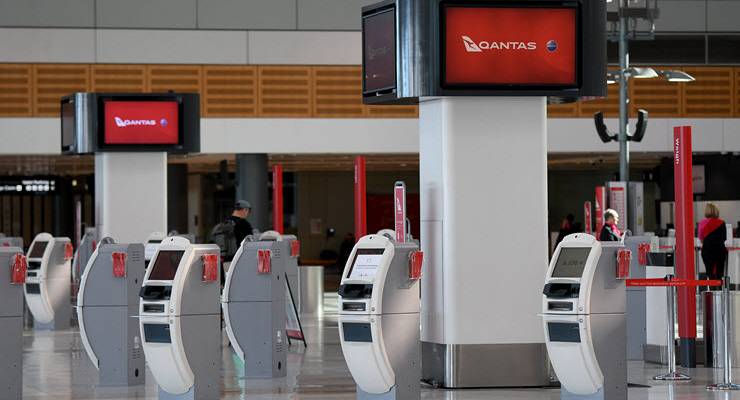
Amid shocking news about rising COVID-19 deaths and health systems collapsing across the world, especially India and Brazil, travel company Trafalgar Group chose to issue a perky email.
“We don’t know about you, but to us it feels like the world of travel is changing fairly quickly right now. As borders continue to open up and destinations continue to open their borders to vaccinated travellers, or those who can show evidence of being tested, it seems like the world we once knew is in sight once more.”
Really?? In response to a polite inquiry, Trafalgar told me that protected travellers can now visit countries such as Iceland, Spain and Croatia.
Maybe so, but that’s hardly the basis for asserting the world is “changing fairly quickly” and that the end is in sight.
At the same time, Flight Centre has been touting the delights of global travel. A new promotion on their website says: “We’ve hiked in Patagonia, sailed to Antarctica, and been on safari in Serengeti. We’ve seen the Northern Lights, the New Year in New York City and the sunrise at the Taj Mahal. You name it, we know it … we invite you to experience our experience.”
No apparent irony that the Taj Mahal is in India, where surging COVID-19 has brought the country to its knees and where the Australian government has banned all flights.
We are used to marketers stretching the truth to make a sale, but it really is time the travel industry and the government were upfront about the future of international travel.
2024 predictions
Back in July 2020, the International Air Transport Association (IATA), the world’s leading travel body, predicted that international air travel won’t return to pre-COVID levels until 2024, a year longer than its previous forecast.
Yet just months later, in November, Qantas CEO Alan Joyce was declaring his optimism that international travel would resume in 2021.
By January this year the ever-ebullient Joyce said Qantas would reopen booking for international flights — including to the US and UK — from July 1 (though adding the rider that the resumption of international flights would be subject to the start of vaccinations and the reopening of international borders).
Flight Centre CEO Graham Turner was equally optimistic. He welcomed the Qantas statement and said it was time businesses “took things into their own hands” — whatever that means.
“There’s just no certainty and you have businesses who have to plan, they have to do their own thing,” he said, “because we are just not getting good messages generally from governments.” We can only guess what he imagined would be “good messages”.
He dismissed a reminder from Deputy PM and Transport Minister Michael McCormack that “international borders will be opened when international arrivals do not pose a risk to Australians” and that the final decision on international travel rests with the government.
“I think he’s just being cautious and doesn’t want to overpromise,” Turner opined.
Which seems a reasonable assessment, given that by mid-April the Qantas boss was saying his “best guess” was a “relaunch” of international travel by the end of October. Tough luck for the people who bought tickets from July 1.
Travel writer Gary Leff has said: “The public spat over whether and when Australia is likely to reopen is about positioning, pressure, and saving face.”
In the meantime, however, hopeful travellers are left totally confused, not knowing when they might get away overseas (except to New Zealand) and worried about refunds from cancelled flights and all those small-print terms and conditions.
It’s right that the government should be cautious and concerned. But the public deserve something better than Qantas and others in the industry making ever-changing predictions, which seem to be little more than whistling in the dark.
Tony Jaques is an expert on issue and crisis management and risk communication. He is CEO of Melbourne-based consultancy Issue Outcomes and his latest book is Crisis Counsel: Navigating Legal and Communication Conflict.








Actually -all these comments by Joyce et al is not for the benefit of travellers – it is actually aimed at vacillating politicians to destabilise them further so a little Bit like dog whistling .
The ‘truth’ on the status of overseas travel?
No idea. However, commonsense says, don’t waste time or money in even thinking about it. Tough for all who need to travel for compassionate reasons.
Schwab will not be pleased. Do be careful, Tony.
Well, one of your writers, Adam Schwab, founded Luxury Escapes … maybe he could write about this?
Obviously, he and Crikey would have to be completely upfront about any conflict of interest.
Long distance running for your life can help develop a prosaic long term outlook view…A form of long distance travel…think & plan in decades & longer for the little entropic contingencies of time.. ..learn to think beyond the immediacy of children & grandchildren…it’ll perhaps help with this, & the inevitable future pandemics, & certainly is essential for the accelerating climate changes of centuries & millenniums to come..After all ,some idiot once said, “life is a journey” ;-0
I agree but not a perspective most people will admit or be able to cope with. Which just throws more combustible material into the witches’ brew we’re making.